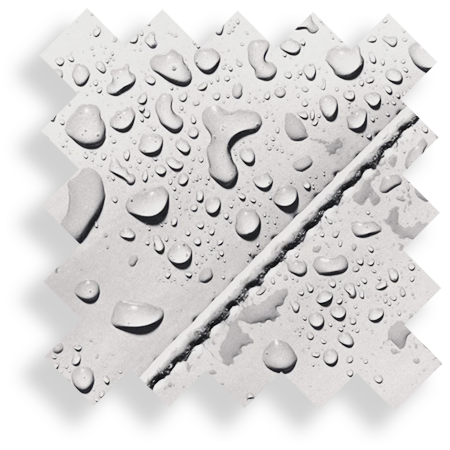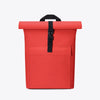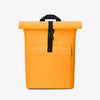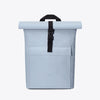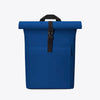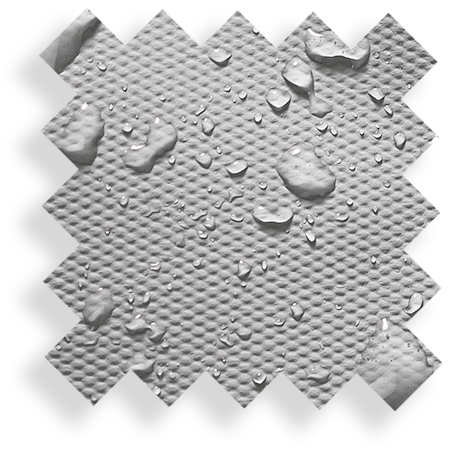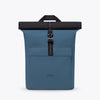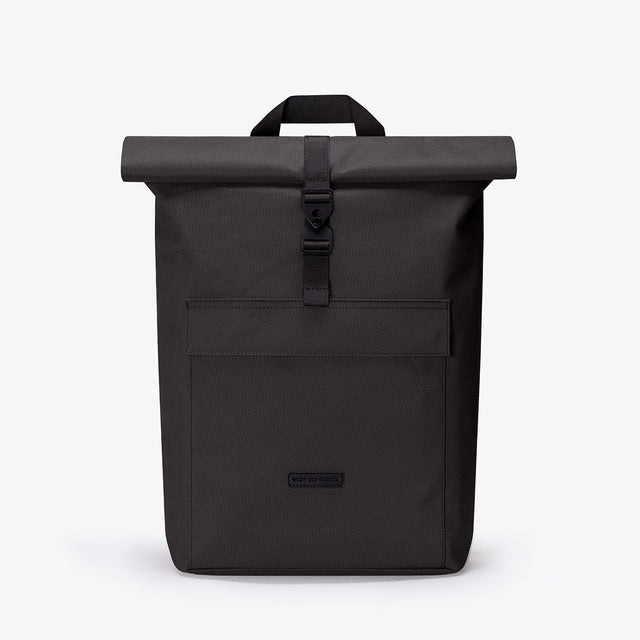
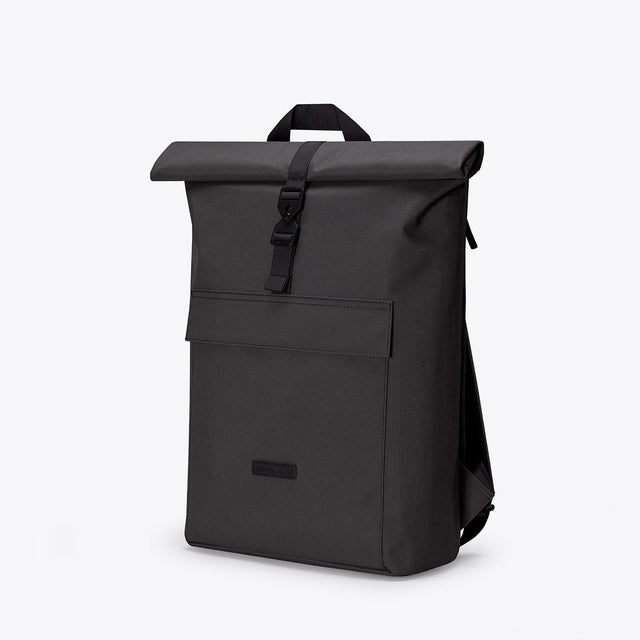
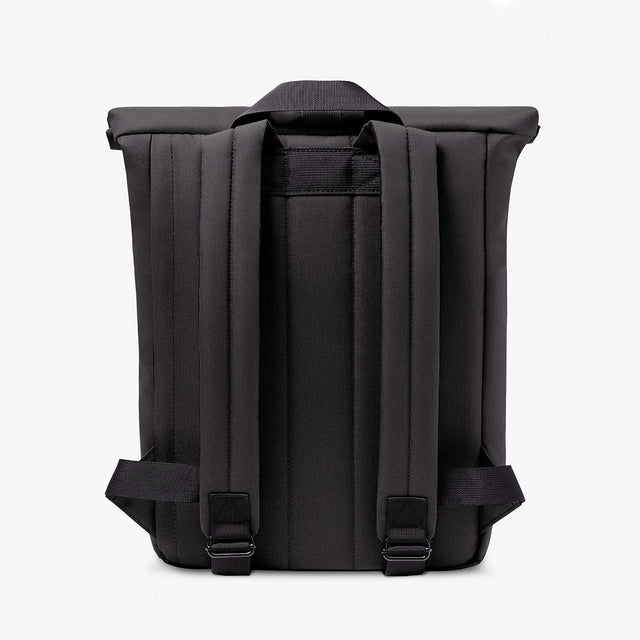
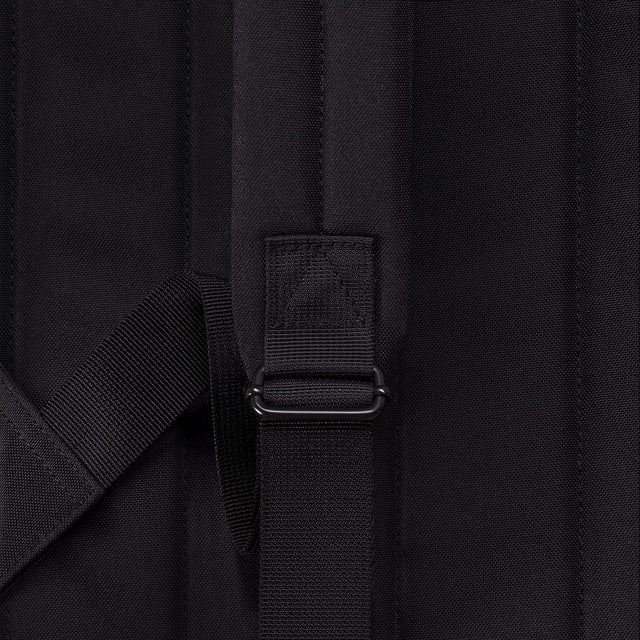
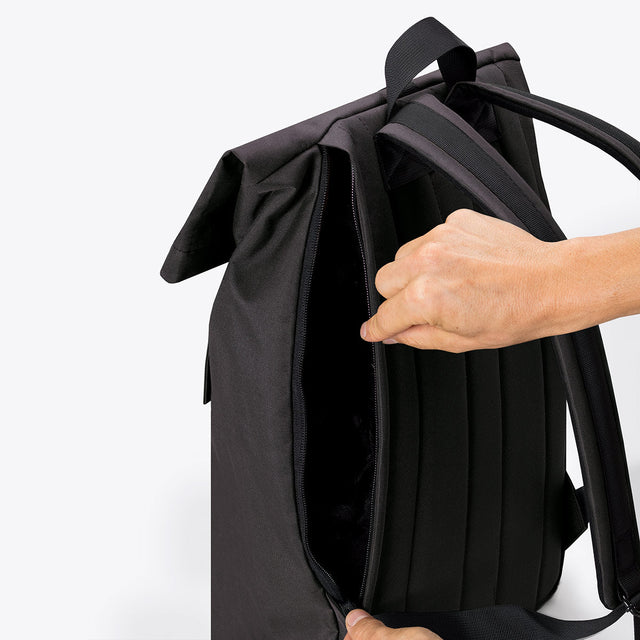
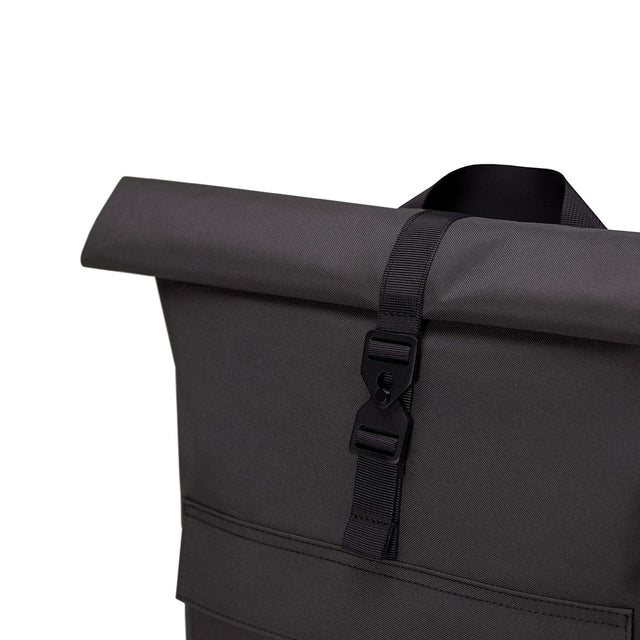
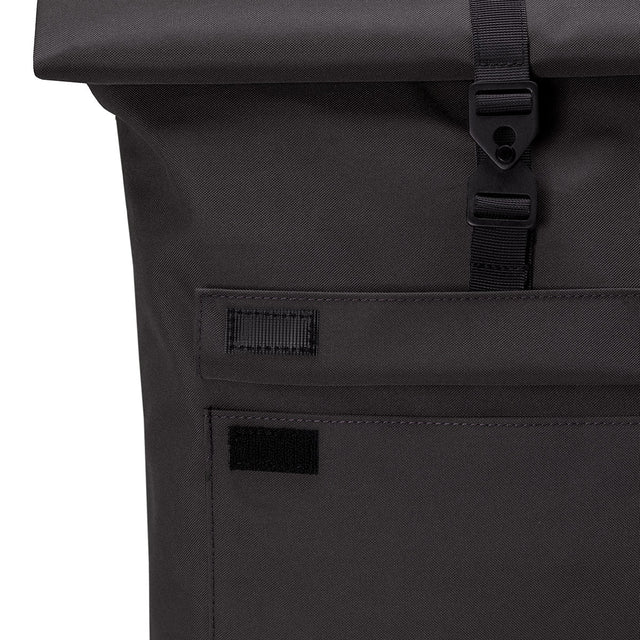
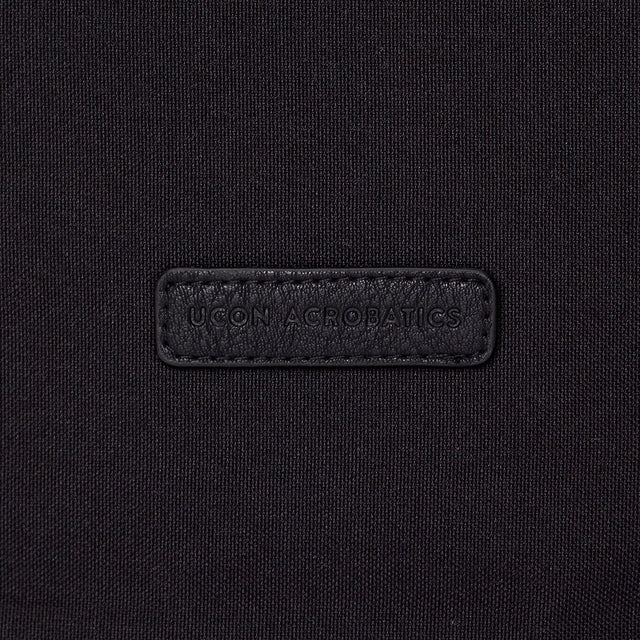
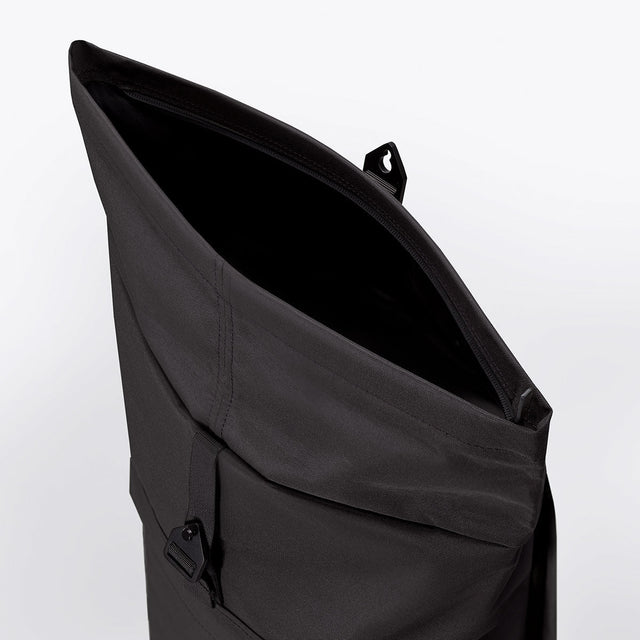
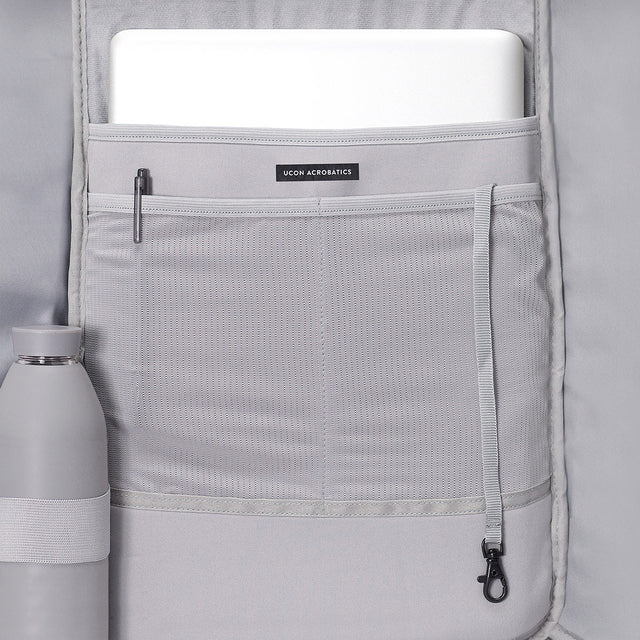
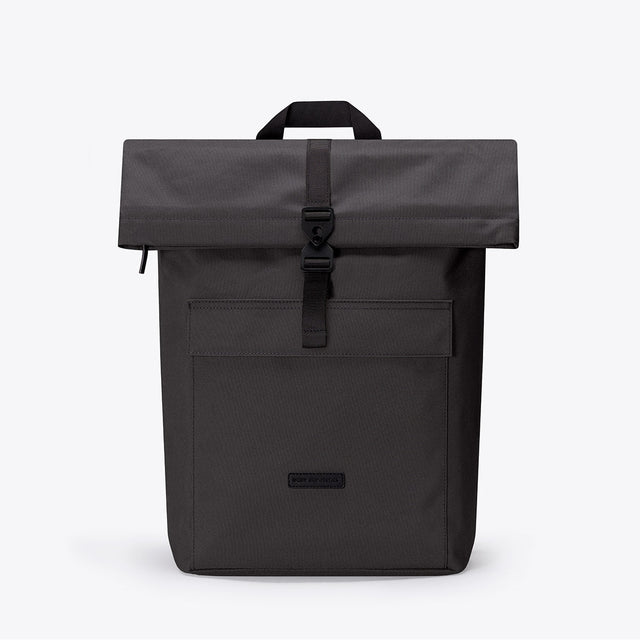
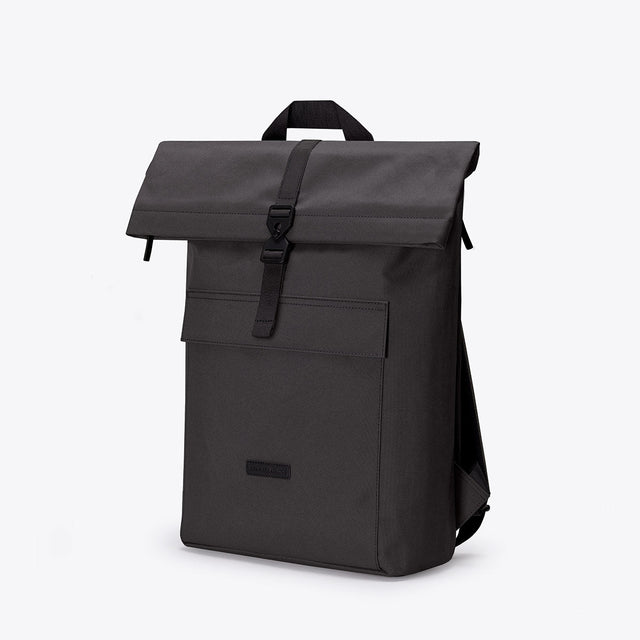
Jasper Mini Backpack
Ce sac à dos minimaliste est la version plus petite du sac à dos Jasper Medium. Qu'il s'agisse de faire du vélo, du shopping ou de la vie nocturne. Le roll-top se ferme à l'aide d'une boucle métallique et permet un remplissage pratique du Jasper Mini Backpack.
Conçus dans un but précis : les sacs de la série Stealth sont directement fonctionnels pour assurer la sécurité de tous les biens - sans fioritures. Un tissu écologique en PET recyclé et un revêtement TPE imperméable à l'intérieur complètent ces sacs de jour axés sur la mission.
- Ready to ship
- Free EU delivery over 150€
- Climate neutral shipping

Black
- Rabat supérieur ou rabat à enrouler en option pour ajuster le volume, pouvant être fermé avec une boucle métallique
- L'ouverture principale se ferme également avec une fermeture éclair
- Accès rapide au compartiment principal grâce à une fermeture éclair verticale
- Poche extérieure à rabat se fermant avec une fermeture velcro
- Compartiment intérieur en néoprène recyclé de haute qualité avec amortisseur intégré, adapté à un ordinateur portable de 16,4 pouces
- Deux poches en filet, par exemple pour un téléphone portable, un portefeuille ou un câble
- Porte-bouteille élastique et porte-clés à l'intérieur
- Dos renforcé avec rembourrage
- Bretelles ajustables et rembourrées garantissant un ajustement confortable du sac à dos
- Partie inférieure rembourrée pour plus de sécurité et de stabilité
- Dimensions déployées: 53 x 28 x 10 cm
- Dimensions roulées: 42 x 28 x 10 cm
- Capacité déployée: 16 l
- Capacité roulée: 12 l
- Compartiment pour ordinateur portable: 26 cm x 37 cm
Sustainability is deeply rooted in our company’s DNA. As a value-driven company, we share common convictions and want to lead the circular economy in our field.
Design Principles
Our design developments focus on durability, as bags and backpacks are meant to be used daily and intensively for years. Minimalist design is also timeless and, in the best case, extends the usage period.
We consider the impact of production with every new product and the entire life cycle. We thoroughly research materials, processes and emerging technologies to understand and reduce the environmental footprint of each product. In the shift from a linear to a circular economy, all components must undergo a review based on the following criteria:
- Reduced environmental impact
- Longevity
- Recyclability
Mono-Material Products
A mono-material is only composed of a single type of material, so it is typically easier to recycle than products made from different things. Also, the higher the material purity, the less energy is needed for depolymerization (chemical recycling). Our goal is to create products from 100% recycled mono-materials from our own industry - in our case PET from textile waste. The following two recycling methods are essential to make products from old textiles.
Fiber-to-Fiber Recycling
This method is a closed-loop process in which used textile fibers are transformed into new fibers to create new textile products, reduce waste, and maximize material reuse. The following two recycling processes are particularly important for manufacturing our products from used textiles.
1. Mechanical Recycling
We use this textile recycling process for industrial textile waste (Pre-consumer). These leftovers from fabric production are mechanically recycled with little energy input. The resulting fibers are shortened, which is why we use them to produce different types of felt. This can be used in soft form as an inner lining or stiff form instead of hard plastic for reinforcement.
2. Depolymerization
We use this textile recycling process for end consumers’ textile waste (Post-consumer). This is mainly workwear, which also contains a high proportion of polyester. These synthetic fibers are broken down into their original chemical building blocks and used to make new synthetic fibers. Often called chemical recycling, our process is based on saccharification, fermentation and alcoholysis. This process requires more energy and chemicals as mechanical recycling but produces higher-quality recycled fibers for new textiles.
Fiber-to-Filler Recycling
This method is an open-loop process that uses textile waste from the fashion industry with a high polyester content already dyed. These are mainly scraps from sewing factories, downcycled into thick felt elements with little effort and used in invisible areas of the backpack. Such mixed textiles are hard to recycle and often end up in landfills or get burned.
Dope Dye
Dope dyeing is a process that adds color to fibers before they are spun into yarn. The savings are enormous - water consumption is reduced by up to -90%, chemical consumption by up to -80%, energy consumption and CO2e emissions by up to -50%. UV stability is also significantly better, as is color fastness to rubbing.
- Fabriqué en Chine dans des usines régulièrement auditées par amfori BSCI
- Le partenariat avec Bluesign® garantit que nous évitons les produits chimiques nocifs lors de la production
Enjoy free shipping on all orders over 150€ within the EU. Incoming orders are processed within 24 hours on weekdays and will be dispatched immediately. Our standard shipping within the EU takes a total of 2 to 6 working days, outside the EU shipping takes 8 to 12 working days. When things need to go fast, we also offer an Express option. We ship our parcels with the tariffs 'DHL GoGreen Plus' and 'UPS carbon neutral'. The delivery companies promise to invest in new e-delivery vehicles and compensate the remaining emissions through climate protection projects...
We currently accept payments by Credit Card (Visa, Master Card and Amex), PayPal or Apple Pay.
Sustainable Partners
Nos prix
S'abonner à la newsletter
Soyez le premier à connaître les nouvelles collections et les offres exclusives.
